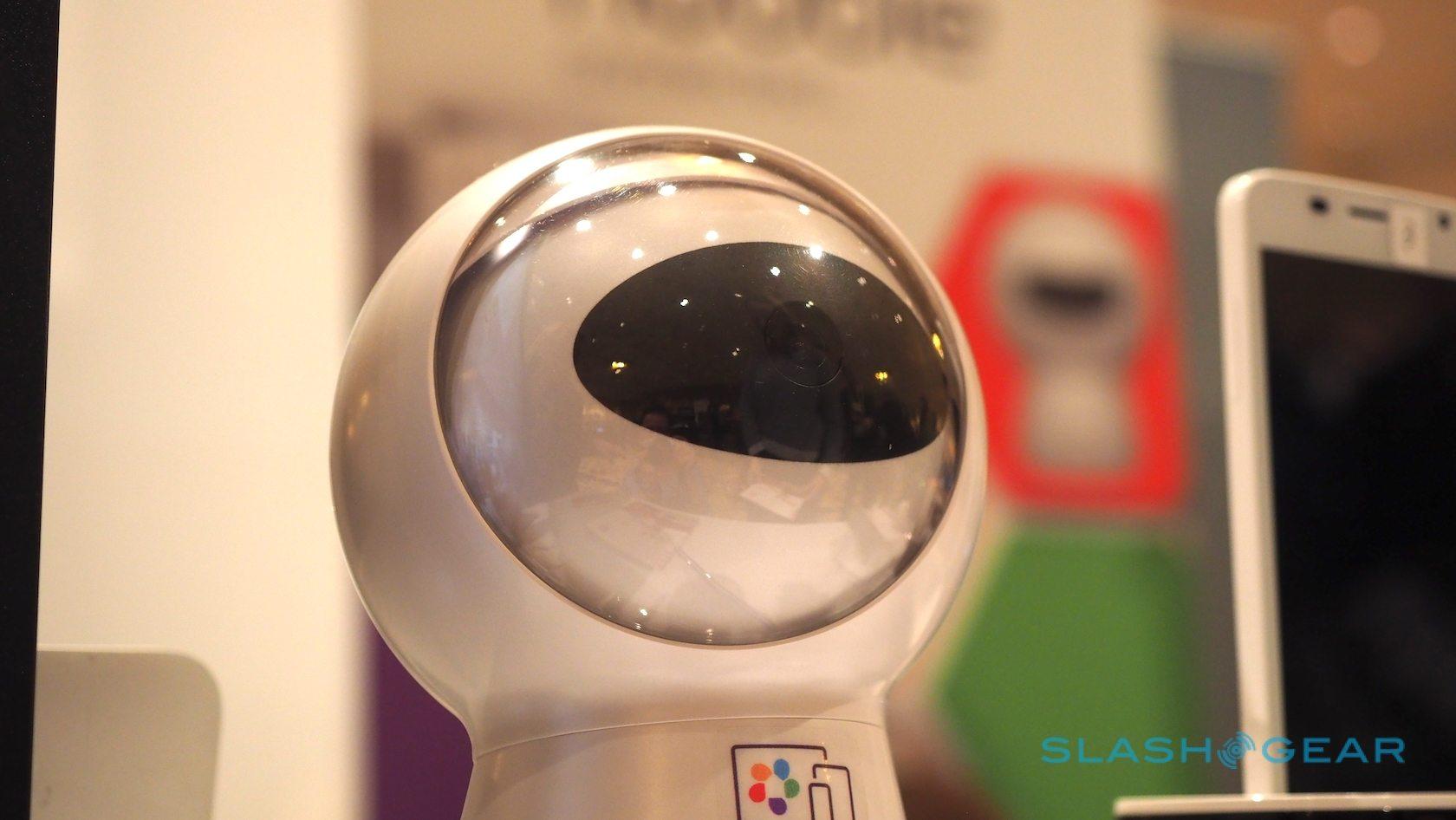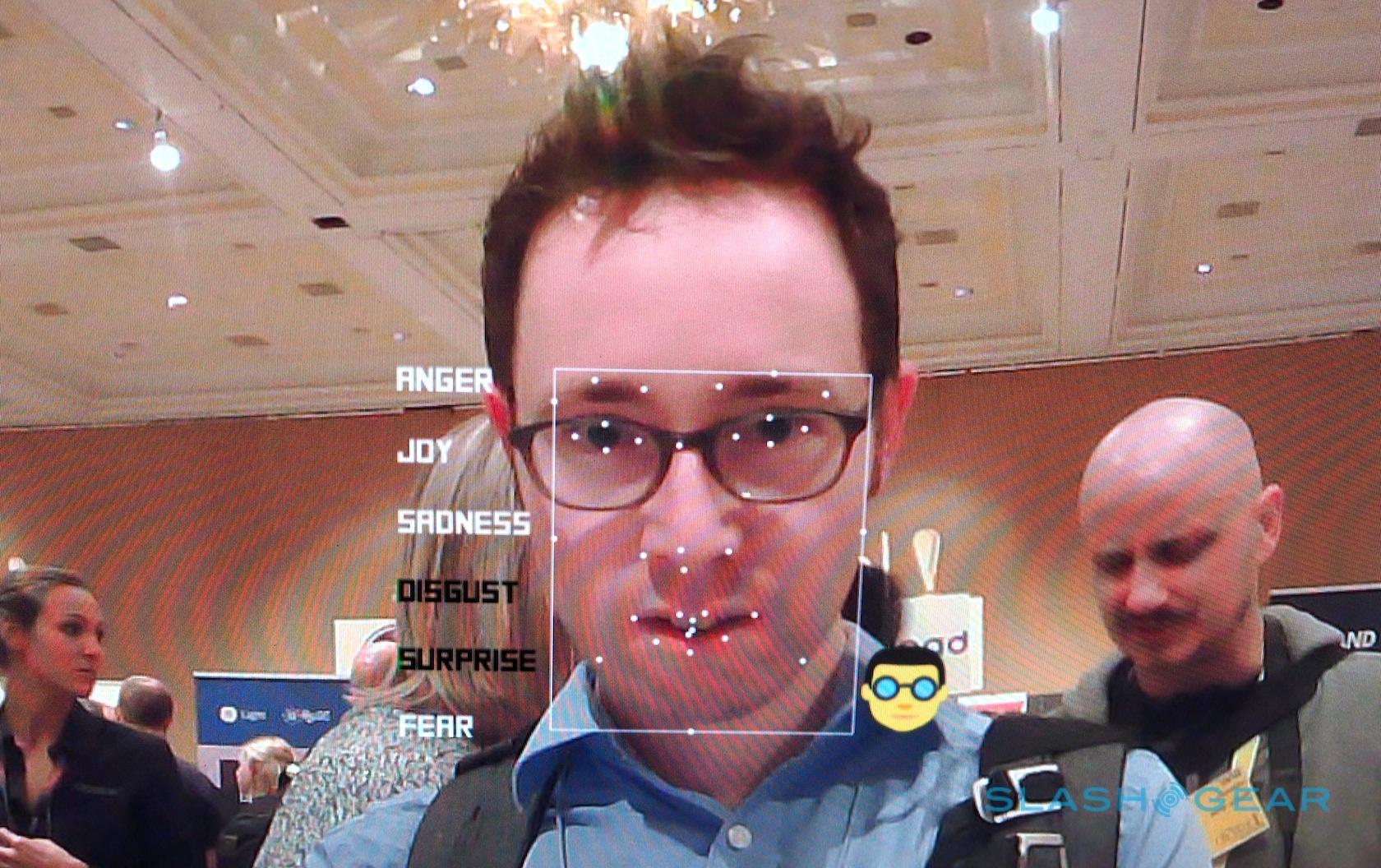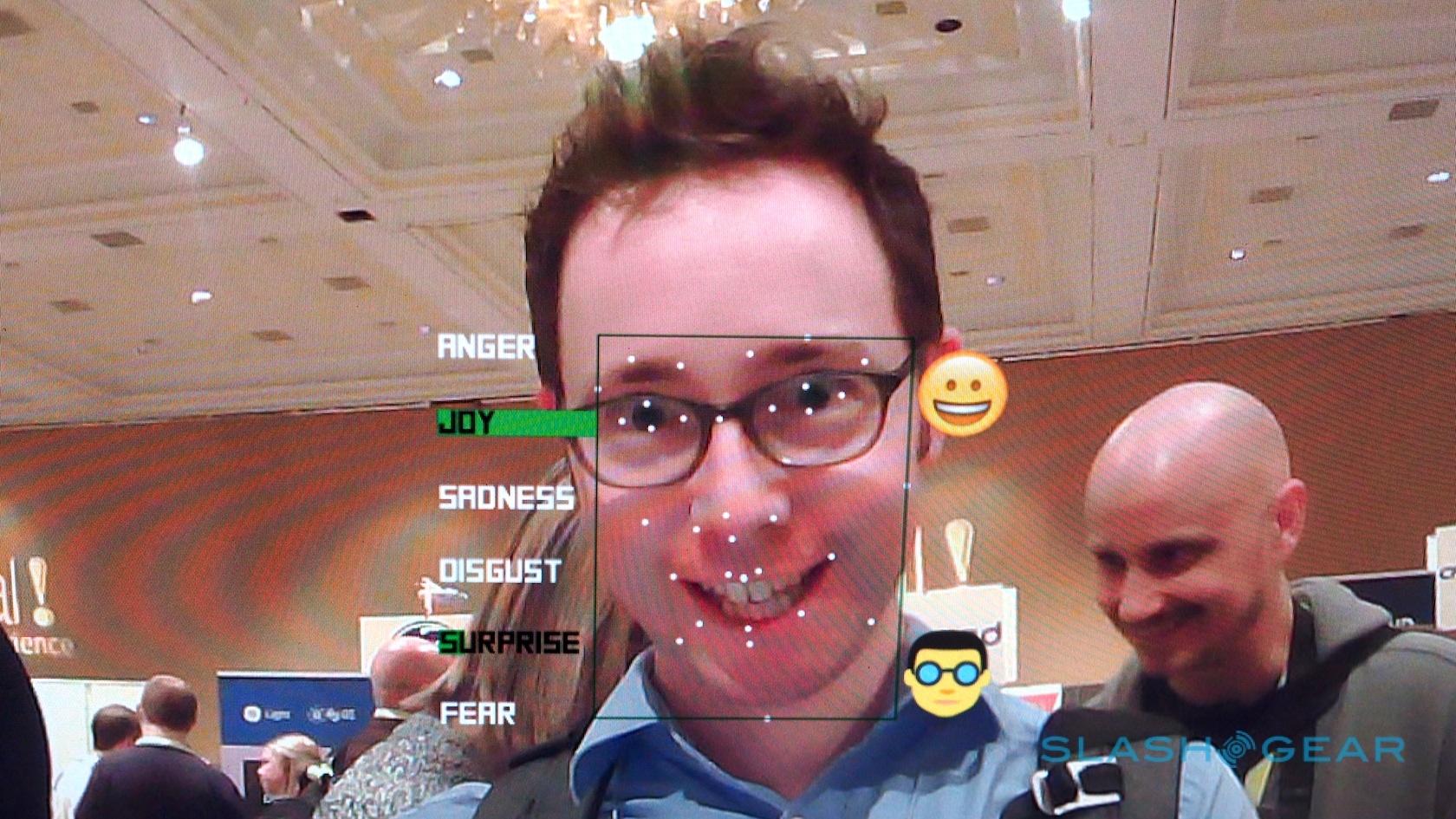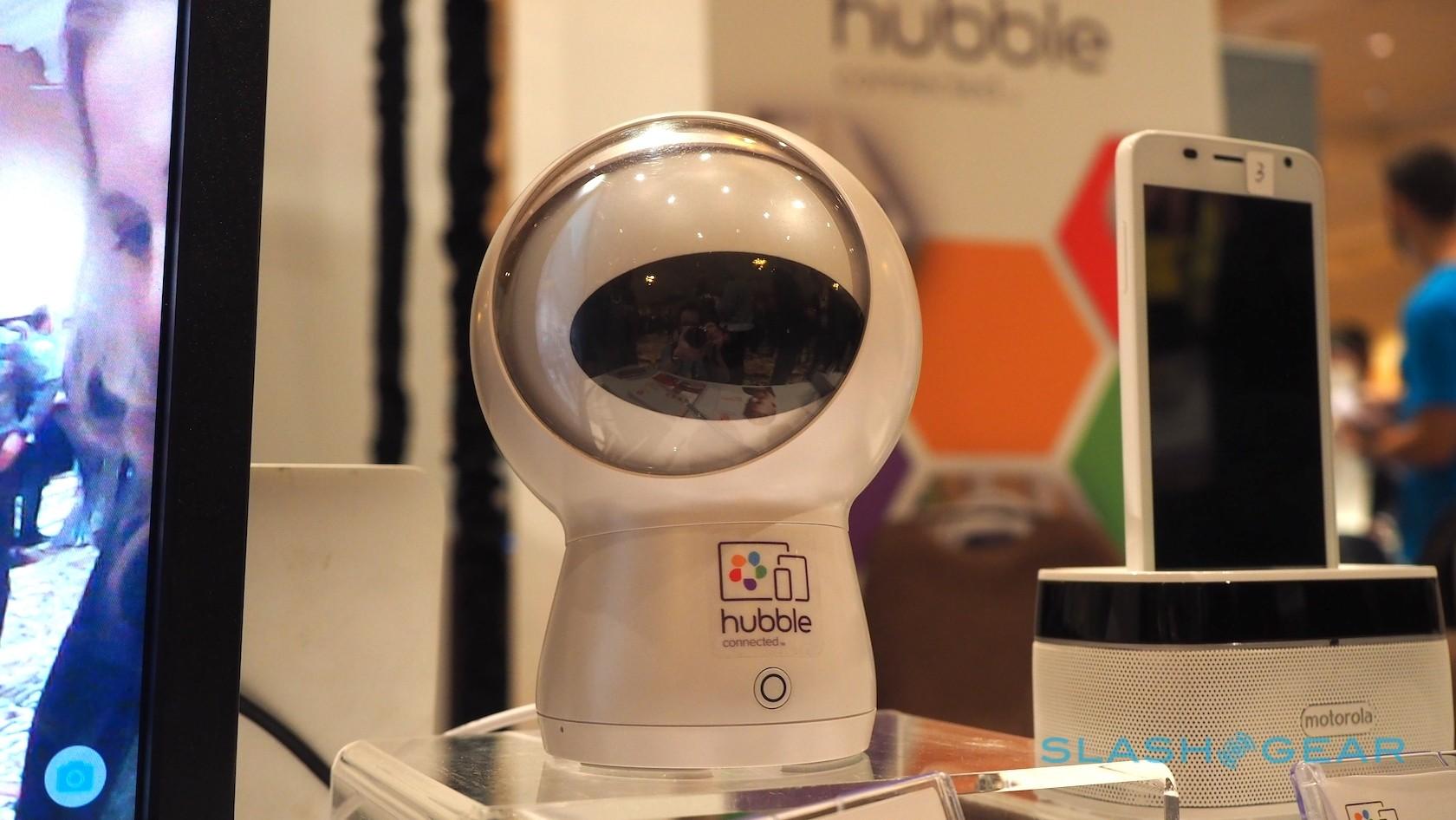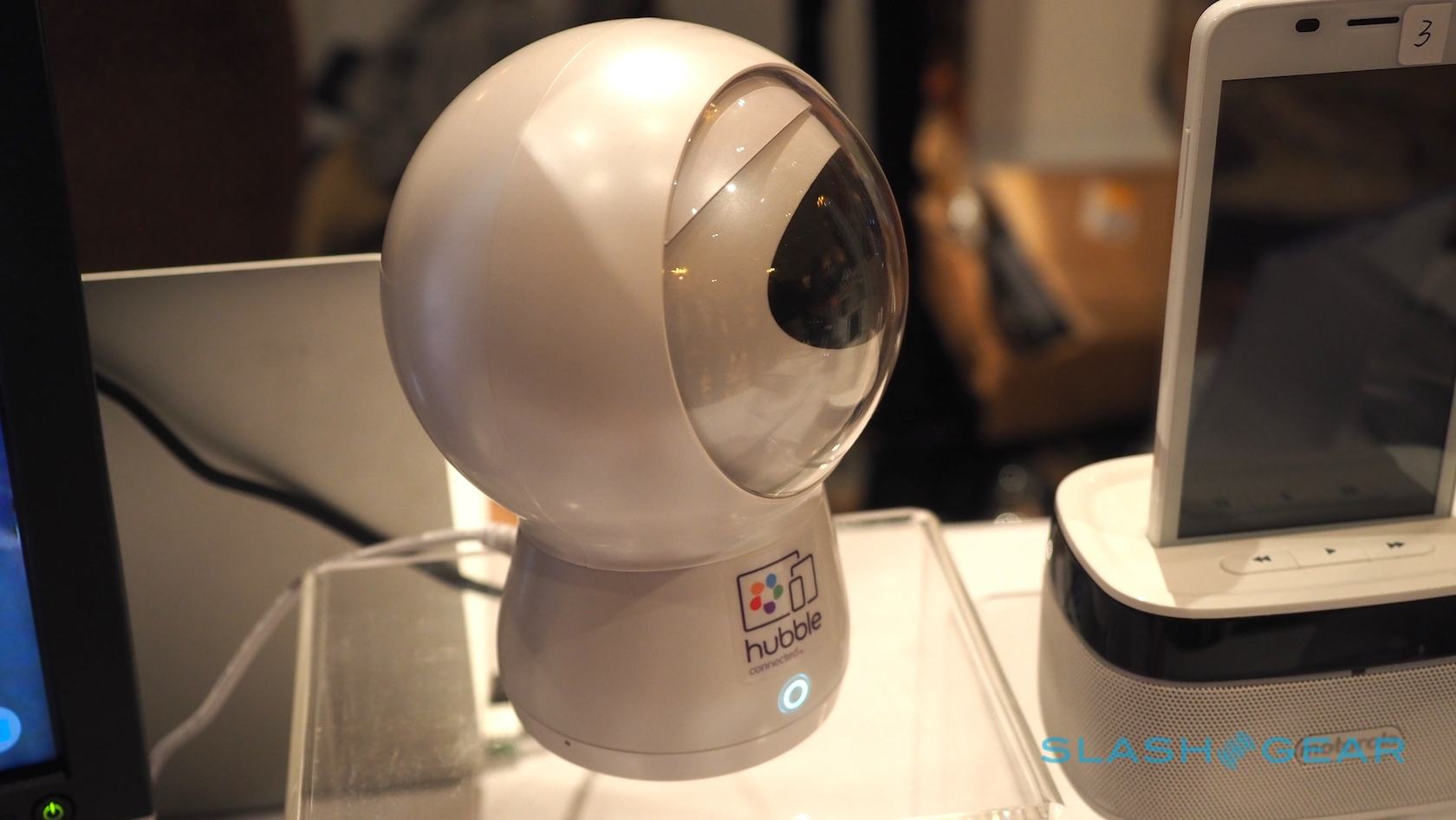Hubble Hugo Mood-Tracking Smart Camera Has Alexa Onboard
Amazon's Alexa continues its march across the smart home, showing up next in Hubble's Hugo, an eyeball-like motorized camera that can also figure out your mood. Part-security camera and part-robot, Hugo is a spherical lens atop a moving base, and actually looks quite a bit like 'bots from Jibo and LG. What those robots can't do, though, is tell when you're furious just by glancing at you.
It does that by tracking facial features and then making a real-time estimate of what emotions are being conferred. Hubble had the camera hooked up to a display at CES this week, showing the analysis across six categories: anger, joy, sadness, disgust, surprise, and fear. After a brief moment of contemplation, it highlights any of the six it believes it has spotted.
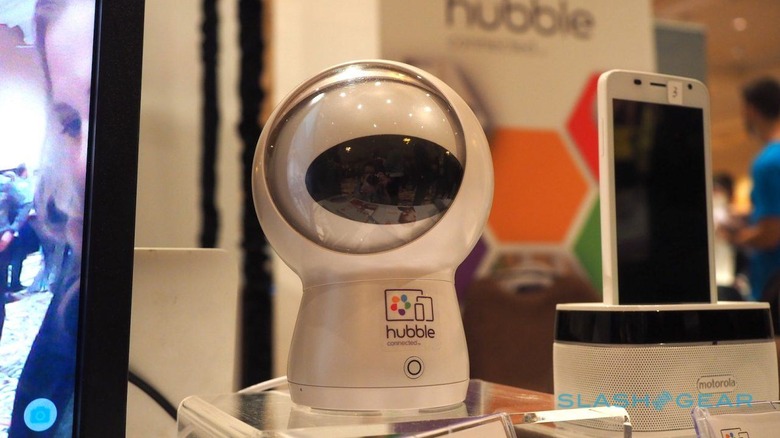
It's an interesting application of technology that, though not new, hasn't really made inroads into consumer devices so far. Back in 2013, for instance, Fraunhofer IIS publicly demonstrated its SHORE system: that could use a camera and facial processing to figure out the mood of people in frame, as well as figuring out their likely gender and age. Commercial implementations of SHORE were already in the wild, Fraunhofer told us at the time, for instance in store windows tracking whose attention was caught by the display and what their reaction was.
Fraunhofer later turned Google Glass into a "wearable empath" headset by loading a version of SHORE onto the much-ridiculed gadget. Little came of the project, given the public's less-than-positive reaction to Glass overall, though Fraunhofer had visions of it giving those on the Autistic spectrum a greater insight into the emotions of people around them.
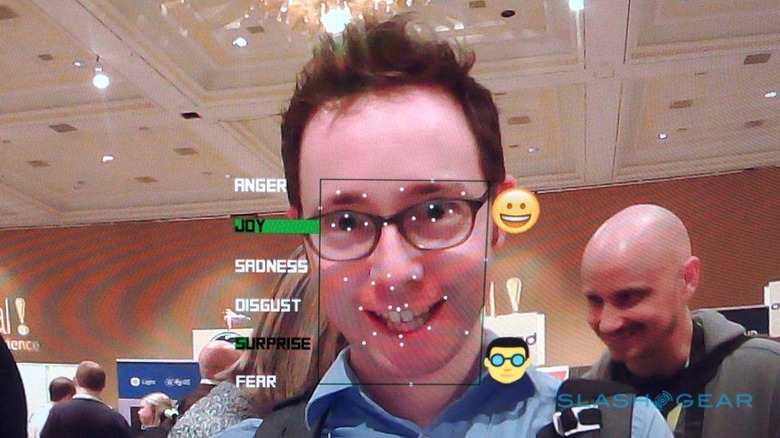
In Hugo's case, the idea is to get a better insight into the mood of the people in the home from afar, and potentially get their smart home to better cater for them as a result. Hubble's team suggested that the tech could give them a warning if their teenage offspring came home frustrated from school. Since there's integration with other IoT technology, it could automatically load a soothing playlist on your speakers if you're angry, or raise the lights if it suspects you're fearful.
More useful day-to-day, arguably, is the fact that the same technology can be used to tell the difference between humans and other movement. So, you shouldn't get an alert if the cat walks across the frame, or if a car passes the window, but if Hugo spots a person's face it'll know to notify you. Since it can rotate 360-degrees, the camera can track a person as they move around the room, keeping them in frame.
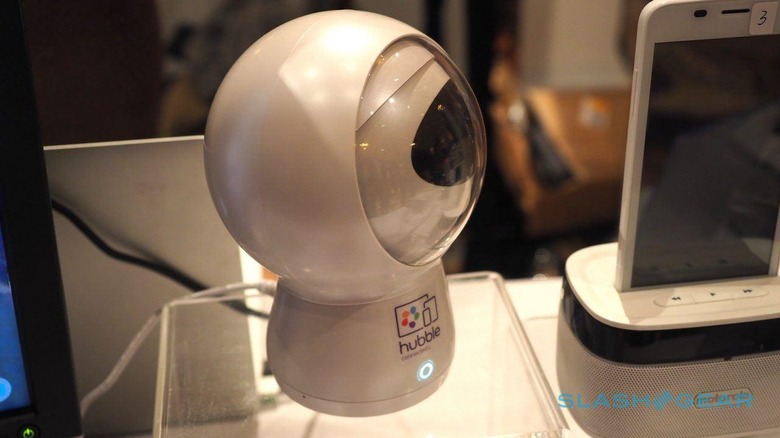
While you might want to log into a remote stream via the Hubble app when alerted, there are things the smart camera can do on its own. If it hears a baby cry, for instance, it could read an audiobook to them or play music using its built-in speakers. They can be used to remotely speak to whoever is nearby through the app, too.
With Amazon Alexa support, meanwhile, there's all the usual question-and-answer technology we've seen in Echo, with Hugo able to answer trivia questions, give weather forecasts, help you with shopping, and more. Connect Alexa to your other smart home gadgets, like lighting and locks, and Hugo can act as a gateway to those, too.
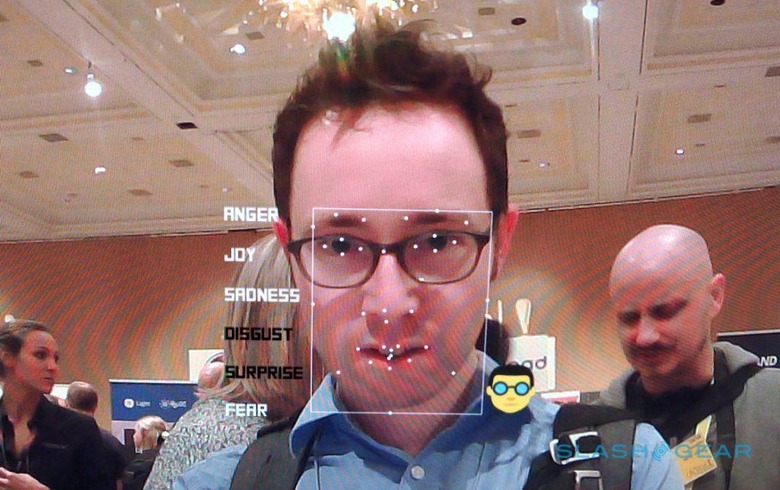
On those occasions you don't want Hugo tracking your mood, meanwhile – or simply prefer not to be watched – its eye has an integrated "eyelid" cover that can be brought down to physically cut off the video. It's a simple approach, but also an easy way to visually check that you're not being recorded. An SD card can store footage locally, and there's a cloud service too: Hubble will give all owners 24 hours of cloud storage free, with longer periods on a subscription basis.
As for price, Hubble says Hugo should be under $300. That's in the same ballpark as, say, a Nest Cam and an Amazon Echo Dot, and even then you wouldn't get the emotion monitoring and physical tracking ability. Hugo will hit shelves later in the year.

